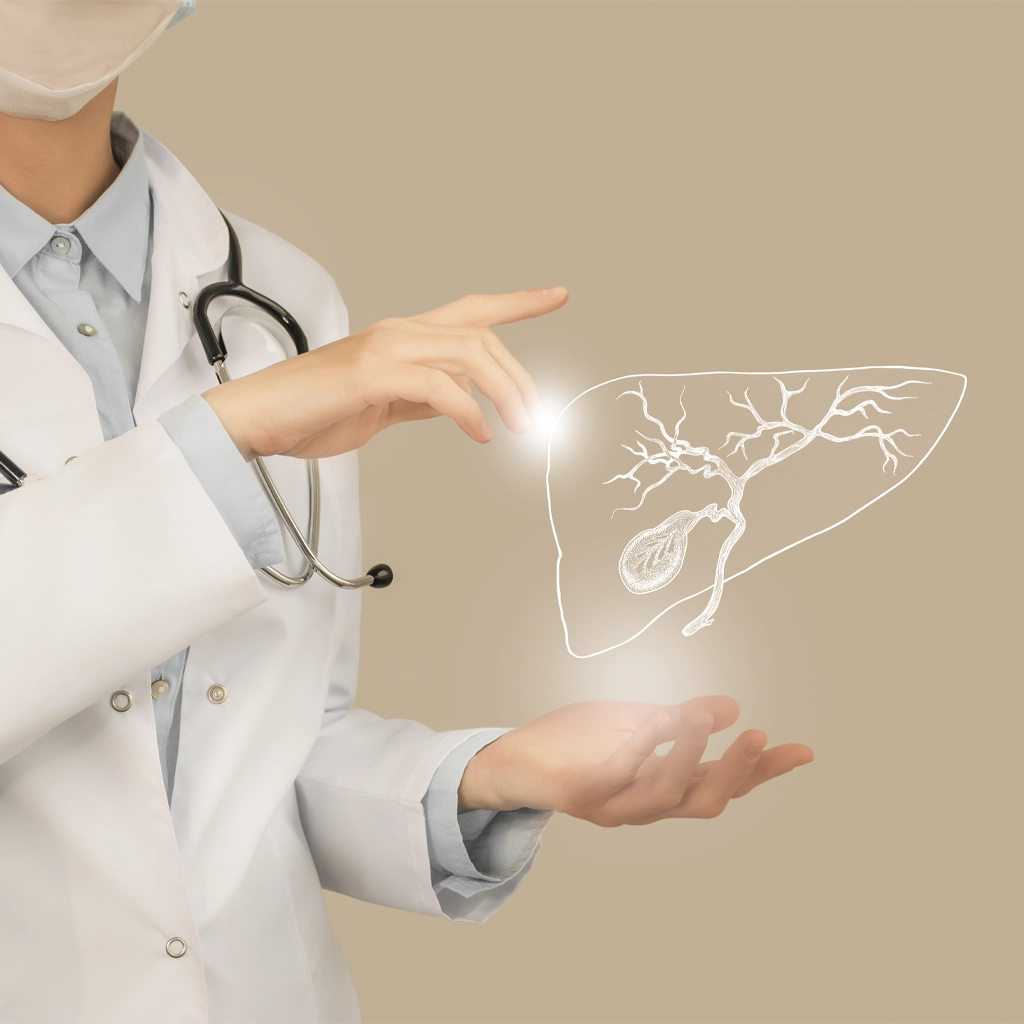Bland Liver Embolization
For the treatment of liver cancer
Bland liver embolization is a treatment for primary and metastatic liver tumors, as well as benign liver hemangiomas. It is a minimally invasive procedure that embolizes or “blocks” the flow of blood to the tumor, causing it to shrink. Its main benefit is that it can reduce tumor size and growth without damaging healthy liver tissue.
This treatment may be used for patients who are not eligible for liver resection surgery. It can also be used as a “bridge” treatment for a patient needing a liver transplant. While not a cure, bland liver embolization can help improve the quality of life for patients with liver tumors.
